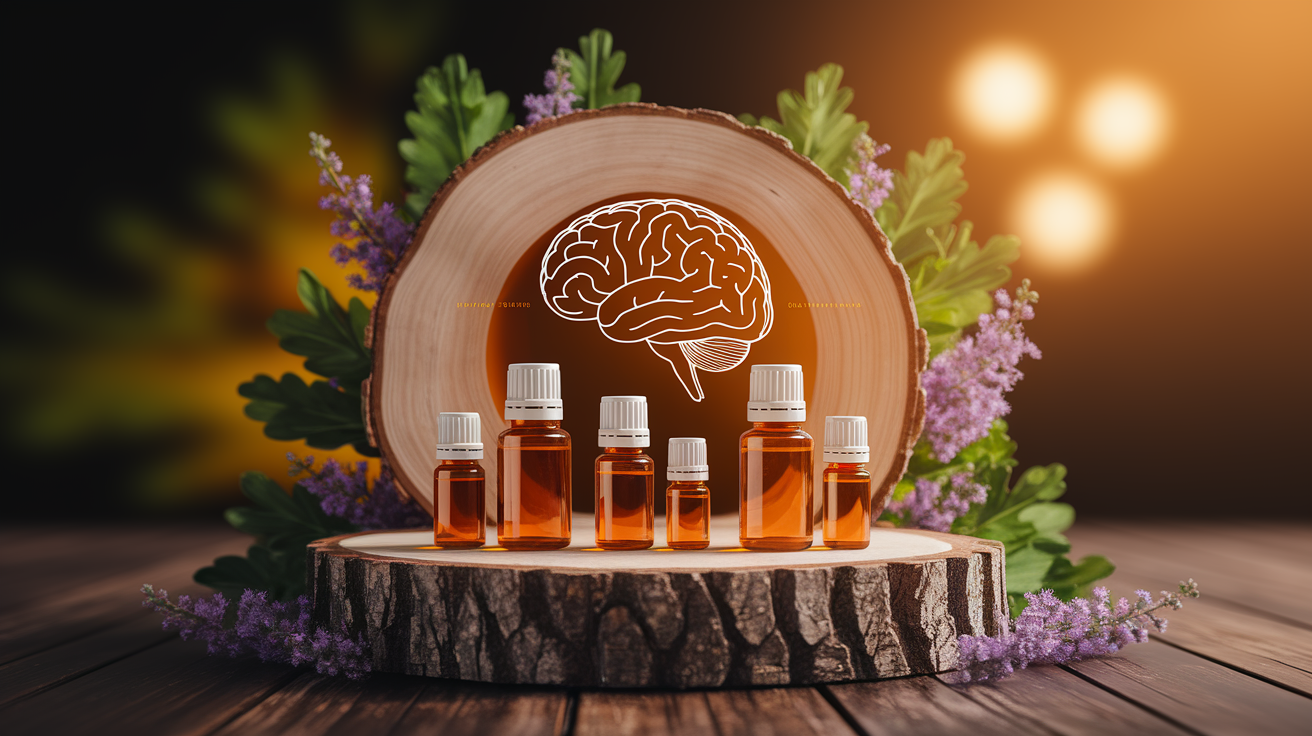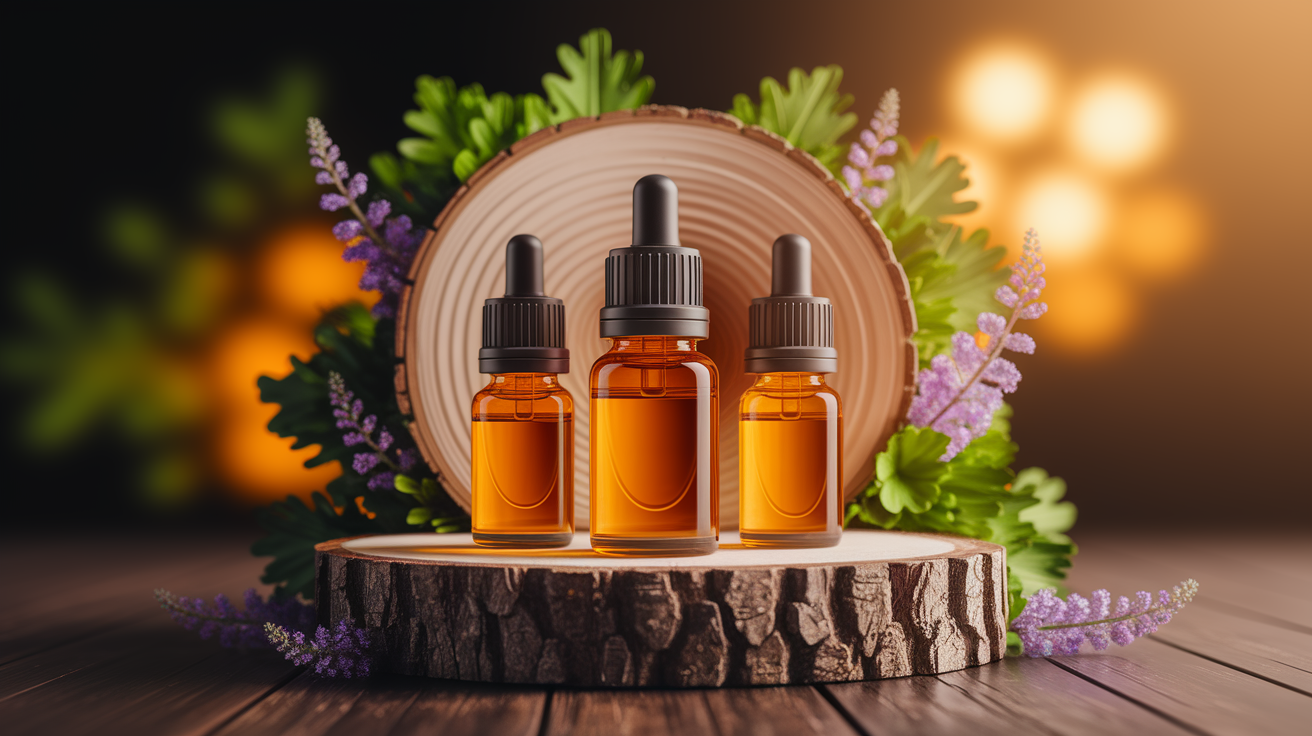Introduction: Scented Hope for Cognitive Support
It’s strange how a single breath of something fragrant can tip you back into a memory you thought was gone. That’s the magic I keep coming back to when thinking about dementia and cognitive decline—those moments where the right scent seems to tug at threads deep inside the brain. In the world of aromatherapy, this isn’t just folklore; some research suggests certain essential oils may give the brain a nudge, supporting memory, mood, and mental clarity. Even if the science is still catching up, there’s something incredibly human about reaching for a natural remedy that speaks to both body and soul.

How Essential Oils Interact with the Brain
Slip into this with me for a moment: You’re inhaling the sharp, green scent of rosemary. Molecules waft into your nose, meet olfactory receptors tucked in the nasal passages, and trigger a cascade straight to the hippocampus—the brain’s memory lighthouse. This route doesn’t need to cross the blood-brain barrier; it’s a direct line, like a whisper sent into the brain’s command center. Research covered in aging neuroscience reviews suggests these scents can influence neuroplasticity—the brain’s way of rewiring itself—and might reduce inflammation or oxidative stress linked to neurodegenerative diseases such as Alzheimer’s. It’s a little wild to think a whiff of rosemary or eucalyptus could spark chemical changes that help with focus or memory, but that’s the olfactory system for you: powerful, intimate, and surprisingly direct.

Top Essential Oils for Cognitive Benefits
When it comes to choosing the best essential oils for dementia patients and cognitive support, I keep circling back to a core group—a fragrant toolkit for brain health:

- Rosemary oil: Often linked to memory enhancement; crisp, herbaceous, and stimulating.
- Lavender oil: Gentle and calming, useful when anxiety or restlessness cloud thinking.
- Peppermint oil: Menthol-rich and invigorating, it can help lift mental fog.
- Rose oil: Sweet and floral, possibly helping with mood support in dementia care.
- Eucalyptus oil: Not just for breathing comfort—it may influence neurochemistry.
- Lemon balm: Mildly sedating, easing agitation without dulling the mind.
- Frankincense oil: Deep and resinous, tied to mindfulness and mental clarity.
Each of these oils carries unique compounds and aromas that might offer cognitive benefits, whether as part of daily mental wellness or in holistic dementia care routines.
What the Research Says
Some of the most buzz-worthy findings come from a University of California, Irvine study where older adults inhaled seven different essential oils nightly for six months. The reported 226% increase in verbal memory performance had me double-checking the figures—yes, that’s what they claimed. Still, the small sample size means caution. Animal studies, like ones where rosemary and orange oil improved cognition in dementia-model mice (see details here), add intrigue to the picture, tying antioxidant effects to potential memory protection. On the flip side, critical voices remind us via analyses that evidence is mixed—there’s potential, but it’s not definitive.

Safe and Effective Aromatherapy Practices
There’s a sweet spot in aromatherapy: enough scent to gently wrap around the senses, but not so much you’re overwhelmed or irritated. Always use high-quality oils, and diffuse them in well-ventilated spaces to avoid headaches or respiratory discomfort. For dementia patients, consultation with healthcare providers is a must—especially if there are respiratory issues or multiple medications in play. As clinical reviews note, essential oils should be adjuncts, not replacements, in dementia care. Think of them as allies to established treatments, offering moments of calm, clarity, or connection alongside more conventional therapies.

- Start small: One or two oils at a time to observe effects.
- Use indirect inhalation: Diffusers or scent strips rather than applying undiluted oils near the nose.
- Time it wisely: Calming oils like lavender in the evening; stimulating ones like peppermint during the day.
- Blend carefully: Combine scents that support the intended cognitive goal without competing.
Conclusion: Fragrant Futures for Brain Health
There’s something profoundly hopeful about the idea that a familiar scent could spark recognition, clear a mental haze, or soothe agitation. While the science continues to evolve—sometimes with breathtaking results, other times with sobering limits—the human connection to fragrance is timeless. In dementia care and cognitive wellness, essential oils offer more than just pleasant aromas; they can be small anchors to memory, mood, and identity. As long as we tread carefully and keep evidence in view, weaving these fragrant threads into the fabric of cognitive support might just help create gentle bridges between moments of clarity and the minds struggling to hold on.













